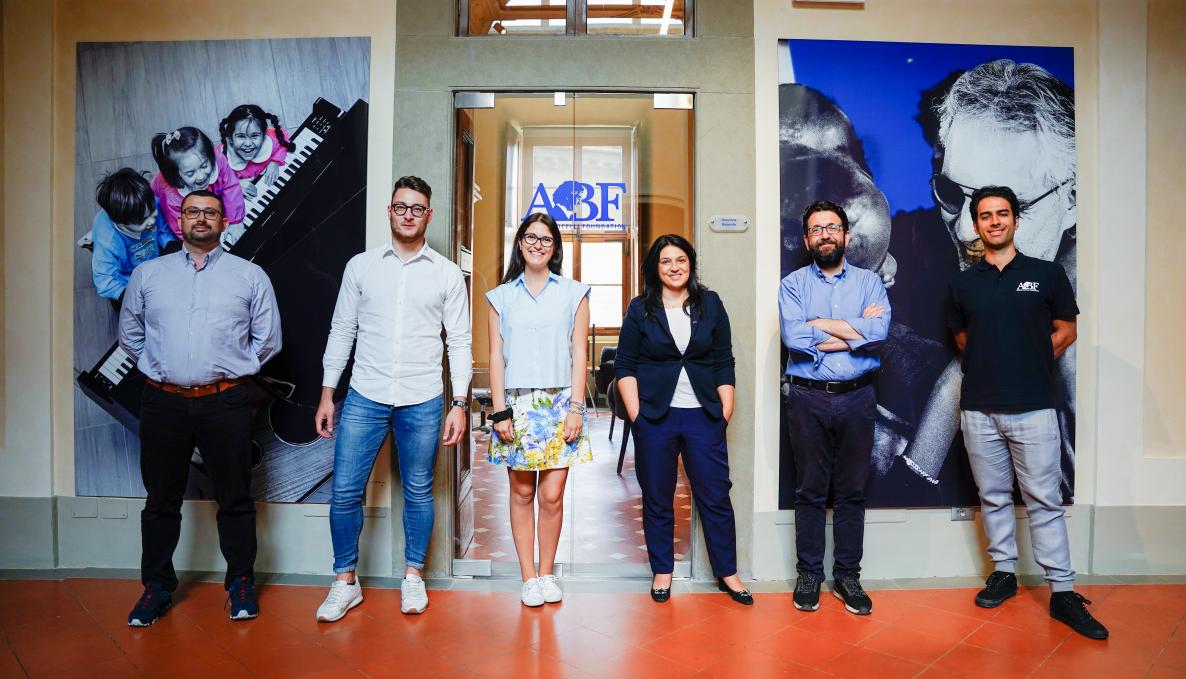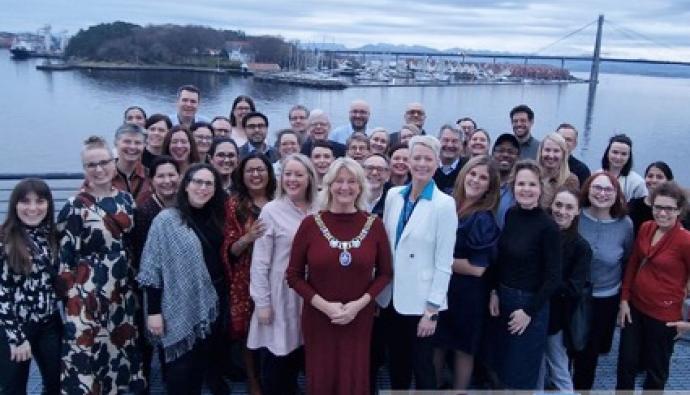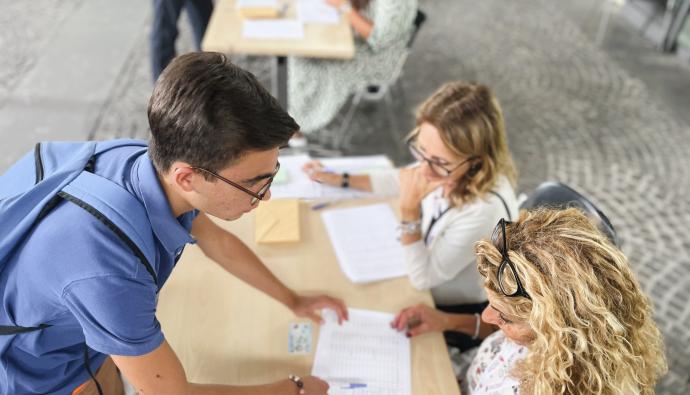THE ABF IS INAUGURATING THE SCIENTIFIC AND TECHNOLOGICAL RESEARCH PROJECT DEDICATED TO DEVELOPING A DEVICE THAT WILL MAKE LIFE MORE ACCESSIBLE FOR THE BLIND AND THE VISUALLY IMPAIRED: THE TEAM OF THE SANT’ANNA SCHOOL HAS BEEN COMMISSIONED FOR THIS TASK

At the new Andrea Bocelli Foundation (ABF) headquarters located in San Firenze, a meeting was held that officially gave the green light to the second stage of the project that is part of the “Challenges” program, which works in the areas of scientific research, technology and social innovation.
“Challenges” aims to take on vital challenges in terms of investments to be made and results to be achieved, in a desire to allow anyone experiencing economic or social difficulties to express themselves. The program aims to bring together the best minds to discover innovative solutions that can help people tackle and overcome the limitations associated with their disability or hardship, offering them a better quality of life.
ABF’s President, Laura Biancalani and Amos Bocelli, the eldest son of our founder and a member of the charity’s board of directors, welcomed the group of researchers who will be working on the project, led by Professor Silvestro Micera of the Sant’Anna School.
“The Challenges program – said Laura Biancalani – was established at the same time as ABF. In 2011, during a dinner, our founder issued a challenge to a group of researchers at MIT in Boston, inviting them to develop a device that could allow blind people and the visually impaired to lead their daily lives and social lives in a way that is as accessible as possible, both indoors and outdoors. From that insight came a project that we continued until 2016, with results that were already significant at the time and that drove us to reconsider the matter, in our desire to create a second phase of the project, one which was even more practical, that could be developed in Italy”.
“Research and technology were an integral part of my education. I have a degree in aerospace engineering and I wanted to put my skills to work for ABF from the very beginning”, said Amos Bocelli, who also highlighted his twofold motivation: “as an engineer, I am eager to put myself to the test with a challenge such as this, together with the team, and as a member of a family in which I have been able to experience the issue of blindness up close, while there is also my desire to be able to offer a life of opportunity to others”.
“Our goal is to use our skills and previous knowledge and experience in the fields of bioelectronics and neuro-engineering to create a device that is simple to use, yet also effective and capable of improving the quality of life of blind people and the visually impaired”, explained Silvestro Micera, professor at the Sant’Anna School, who will coordinate the work of the research team, which also includes Sara Moccia, Andrea Crema and Daniele Berardini: researchers with different areas of expertise, to tackle all the scientific challenges of the project.
The main objective of the project (entitled “ABF E-Theia Project”) will be to develop a wearable system that can help the blind and the visually impaired to move around unstructured environments and carry out everyday activities. This objective is based on both the results achieved during stage 1 of the ABF project and the significant experience that the Sant'Anna School has acquired, on issues such as sensory feedback with wearable systems, artificial intelligence and image recognition. “ABF E-Theia Project” hopes to also encourage collaborations with and the creation of new projects with even more complex, implantable neuro-technologies.
“I am especially pleased that the foundation’s work related to technological challenges has found new life today, as well as a significant relaunch in Italy – emphasized Andrea Bocelli – where there is a substantial concentration of scientific excellence of outstanding caliber. With the direct involvement of my son Amos also, we will carefully and enthusiastically oversee this project that is so ambitious and necessary”.
The transition from research to the industrial development of the system will be a crucial step, in order to make it accessible to all. “Finding a partner who will believe in this project along with us – said Laura Biancalani – will be a determining factor, in order to be able to make what we set out to achieve a reality. Because, as our founder always reminds us, the world belongs to those who act, not those who merely talk”.



